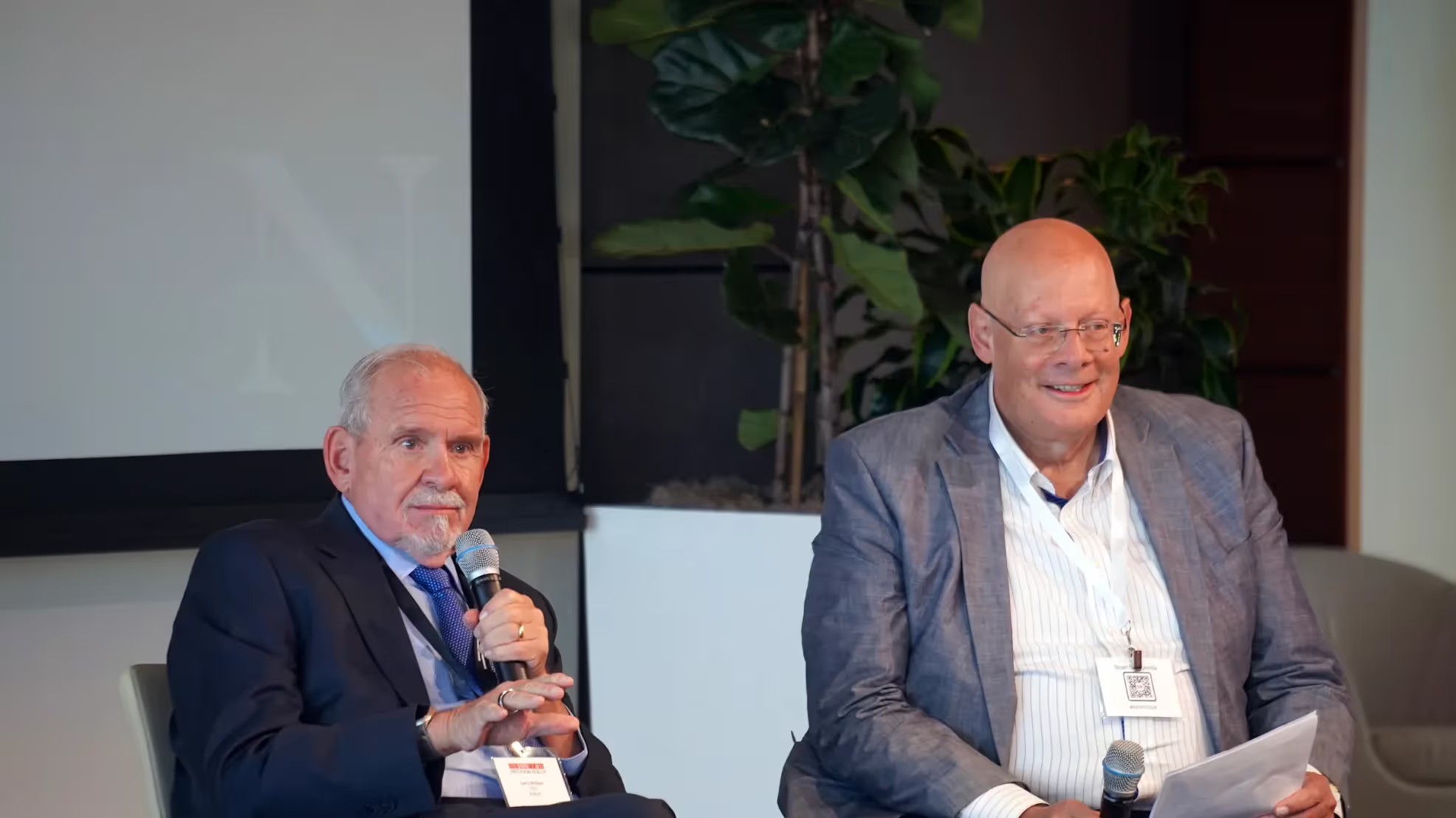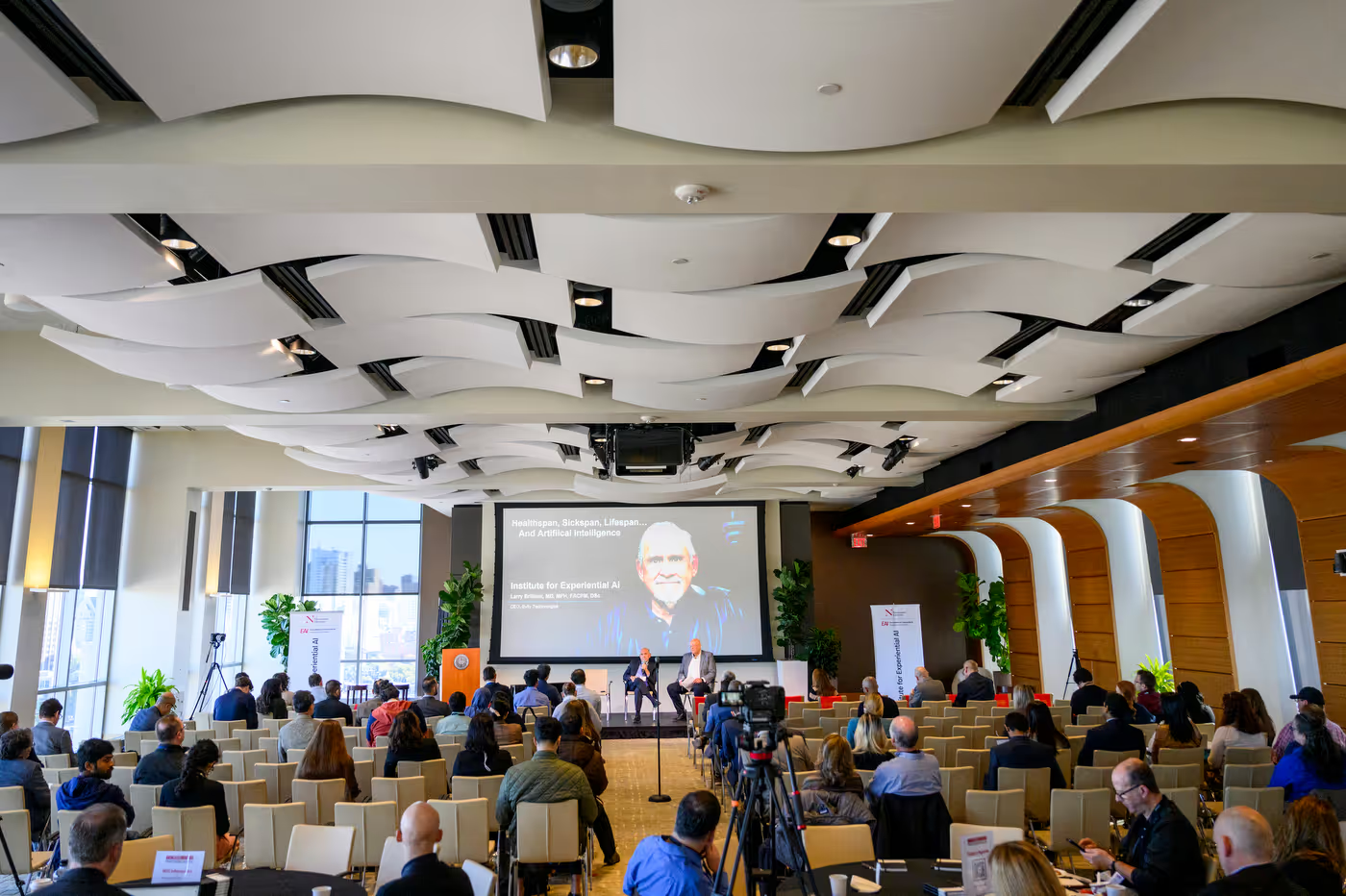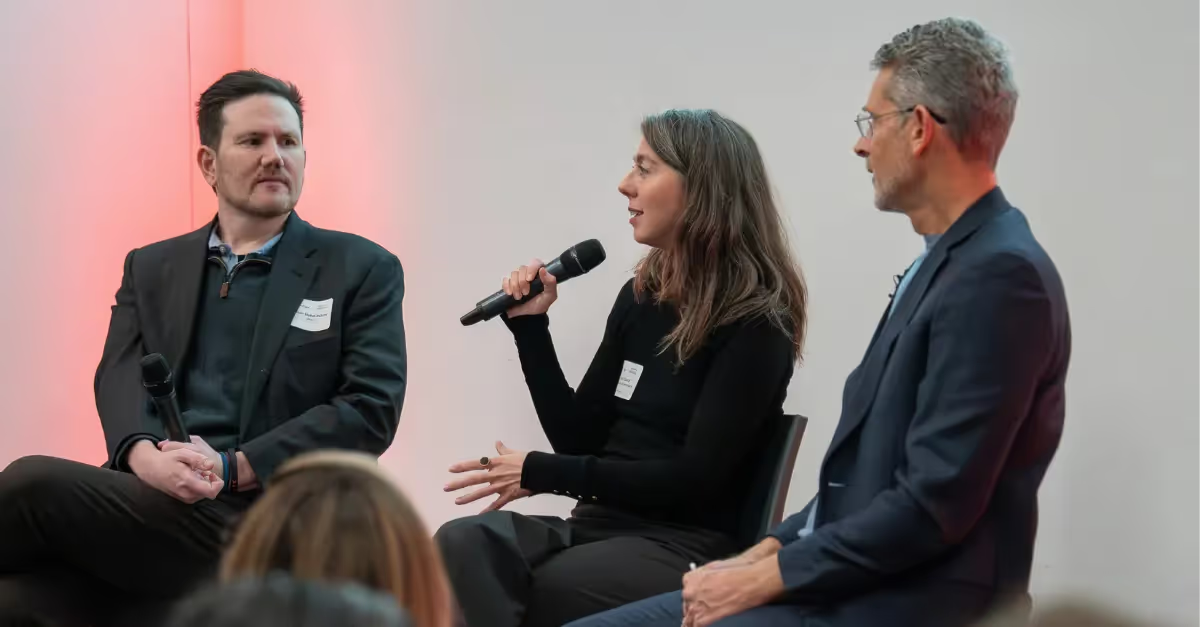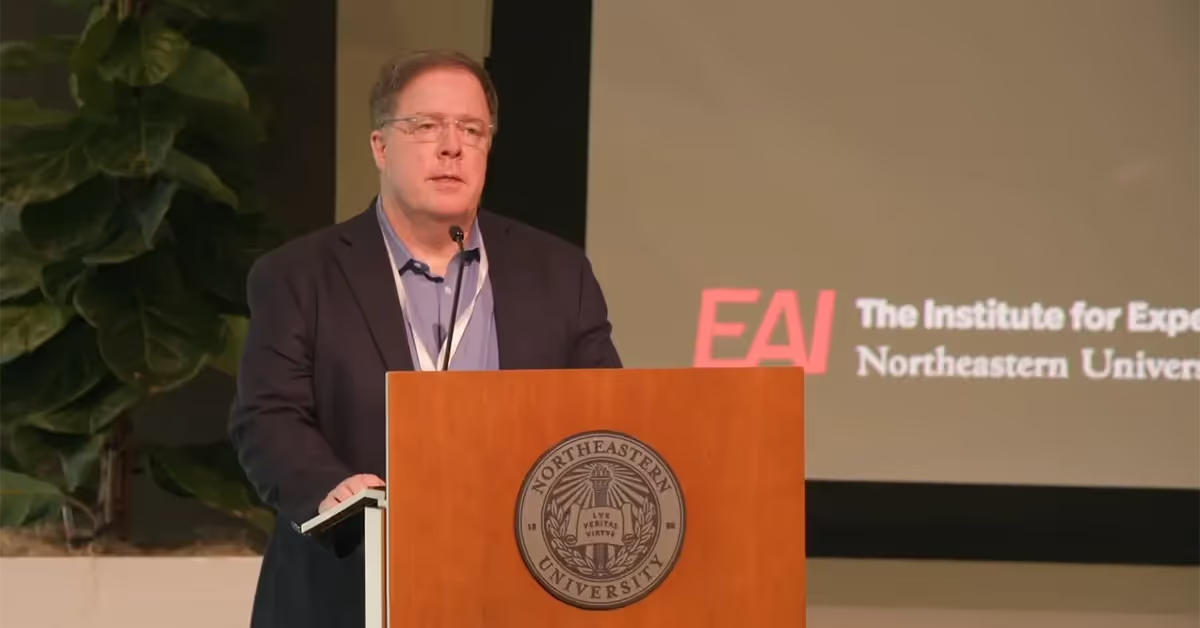From Smallpox to AI: Key Lessons from Larry Brilliant and Usama Fayyad’s Discussion at The State of AI in Precision Health

Epidemiologist, philanthropist, entrepreneur, author, CEO—Dr. Larry Brilliant wears many hats, but he is perhaps best known for being a key member of the successful WHO Smallpox Eradication Programme for Southeast Asia, which targeted one of the deadliest diseases in history.
At The State of AI in Precision Health, Brilliant joined Usama Fayyad, executive director of the Institute for Experiential AI, for a wide-ranging opening keynote fireside chat. The two explored Brilliant’s storied career, the changing health landscape, and the role of AI in helping to solve some of the most pressing global health challenges.
Currently, Brilliant is the CEO of Evity.AI, a health technology company developing an AI platform to streamline knowledge sharing for clinicians and healthcare decision-makers. The company is working directly with the Institute for Experiential AI to build the platform. Whether at the helm of his company or at work in the field, Brilliant has long championed a collaborative approach to problem solving—an ethos that harmonizes well with the “expert-in-the-loop” approach to AI that both he and the Institute for Experiential AI favor.
.avif)
The Smallpox Story
When he was living and working in India in the 1970s, Brilliant brought a similar approach to mass immunization campaigns. As he explained, he wasn’t exactly the first choice of the World Health Organization (WHO) to lead the smallpox eradication program, barefoot and dressed as he was in ashram attire and living in the Himalayas with his guru.
“I worked [typing and translating] for six months before they remembered that I was a doctor,” Brilliant said. “Then someone named Bill Foege, who became the head of CDC and became my mentor for the next three years, taught me epidemiology and took me to the field and showed me my first case of smallpox.”
The WHO has estimated smallpox killed up to half a billion people in the 20th century alone. In the 1970s, when Brilliant joined the project to eliminate the disease on the Asian subcontinent, it was not going well.
“When I joined the program, the only way that we could deal with smallpox was through mass vaccination, and mass vaccination in densely populated countries like India just doesn't work,” Brilliant explained. “Because you can't vaccinate 100% of people and if you did that year there'd be 20-30 million new babies you'd have to go back and vaccinate again, and so smallpox continued to perpetuate.”
Along with Foege, Brilliant developed a "ring vaccination" strategy that involved encircling every known case of smallpox in the country with vaccination drives. The approach ultimately led to the disease's eradication in 1980. Brilliant was present for that last case, marking a historic moment in public health. Now, Brilliant asks, why can’t we do that for today’s challenges—be it climate change or polio? All you need is a collaborative spirit.

Lifespan to Healthspan
As Brilliant points out, health data analytics have improved remarkably in recent decades, equipping experts with knowledge sets that were once unimaginable. Brilliant demonstrated his experience in this area when he helped lead Google’s Flu Trends project, which brought together large amounts of search data to help estimate global flu activity.
That project beat the CDC’s own reporting “by over two weeks with 100% accuracy for two years.”
“The example shows that large data, big data, properly done, can have enormous public health consequences,” Brilliant added.
But the world is evolving and so are its diseases. Changing demographics alone underlie many of the most urgent problems—namely, the fact that people are living longer lives, but those added years are not necessarily healthy ones. The shift has occasioned a transition from acute to chronic diseases, with enormous economic implications on global populations. Brilliant argued for a greater focus on "healthspan,” which refers to the years of healthy life, as opposed to merely prolonging lifespan.
The Next Frontier
In this new era, AI has incredible potential to alleviate some of the growing burden on health care systems, clinicians, and practitioners. With the basic power to synthesize massive volumes of data to uncover hidden patterns, AI may be the catalyst for precision medicine in the 21st century. Key to its success, though, is the involvement of people—human experts placed throughout the network of health care innovation and delivery. This is the only way, Brilliant says, to ensure accuracy and safety in medical decisions.
In closing, Brilliant stressed the need for global collaboration. As nations, companies, and academic institutions build new bridges between one another, a similar ethos must exist between humans and machines.
“‘In the loop’ means… creating decision support systems that help clinicians make better decisions that help physical therapists make better decisions that help you make better decisions," Brilliant said.
Dr. Brilliant’s talk kicked off a day of fascinating discussions on the impact of AI in health, healthcare, and life sciences. Watch the complete fireside chat below. Explore more from the event and learn how the Institute for Experiential AI is driving innovation here.




